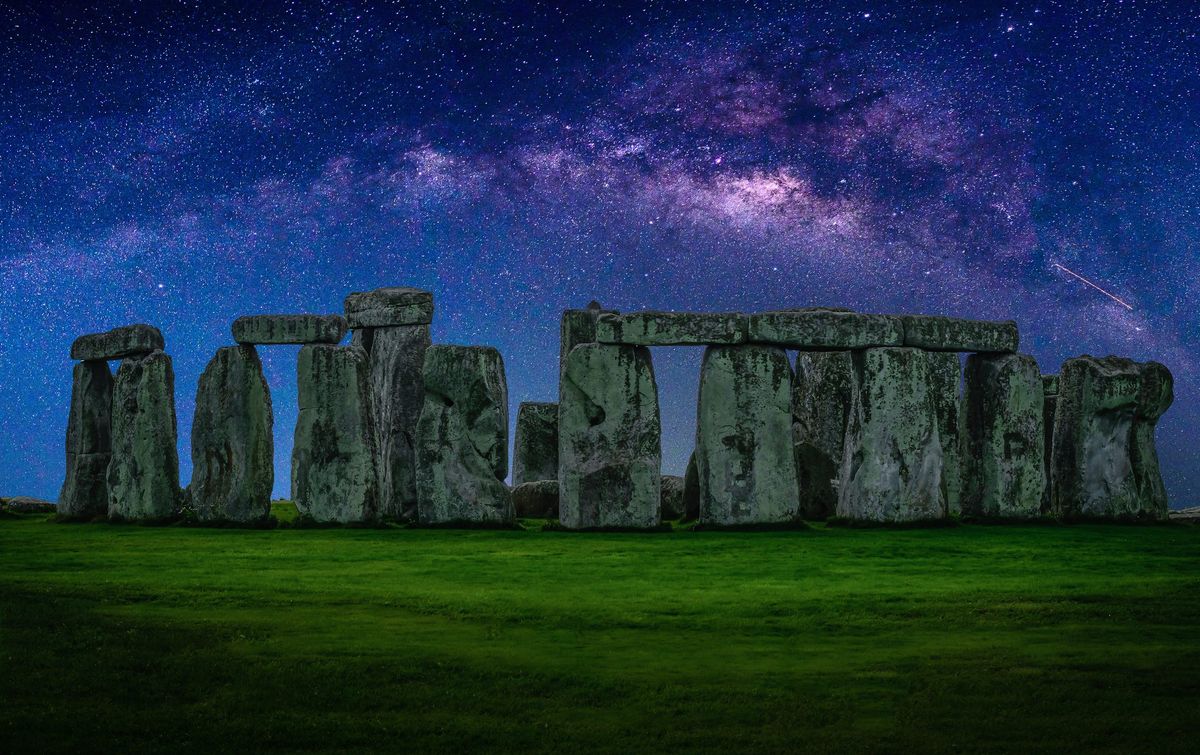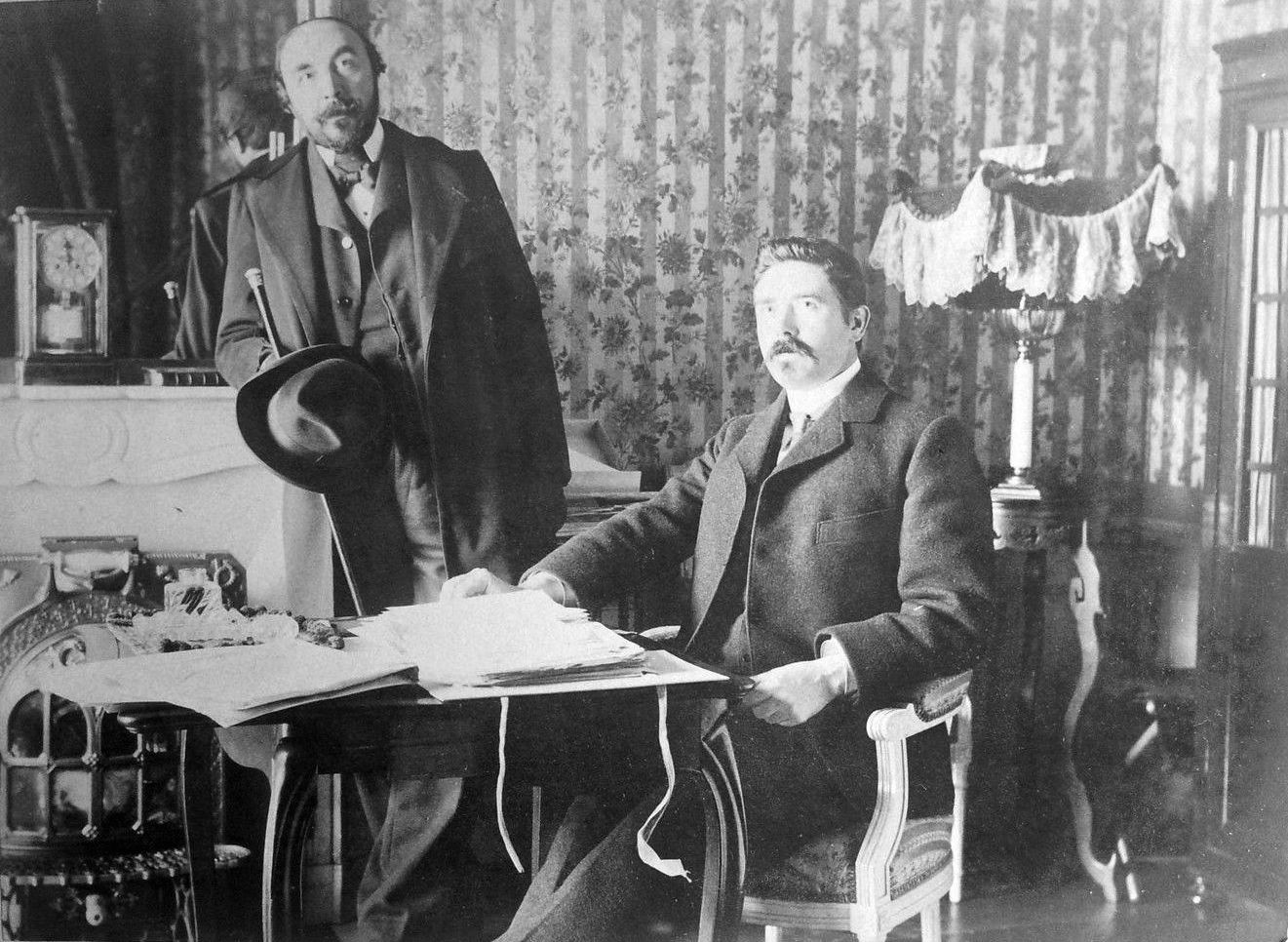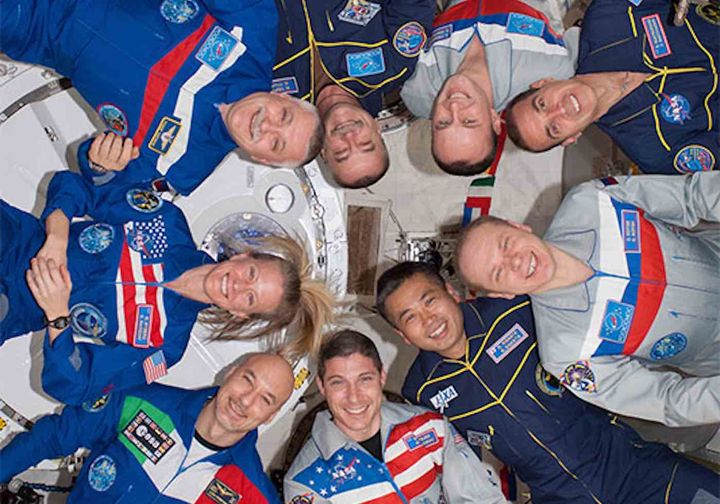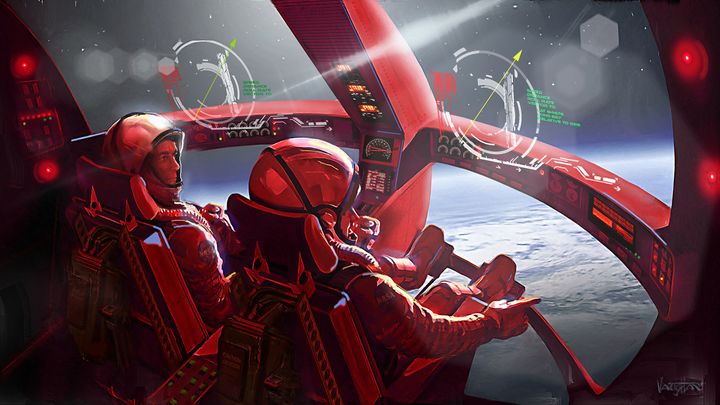The Poetry of Space
Space conjures the imagination. It engages a paradoxical feeling of insignificance and purpose - of infinity and opportunity - of desolation and bounty. Lets discuss!

Space conjures the imagination. It engages a paradoxical feeling of insignificance and purpose - of infinity and opportunity - of desolation and bounty. It may be the same feelings stirring neolithic explorers gazing upon the trackless seas. This article briefly discusses some of the synonyms and inspiration surrounding space.
Whether the Cosmic Ocean, Space, Silent Sea, Void, or the New Wine-Dark Sea, or Vast Desolation, space has always inspired both insignificance and purpose. The roots are Paleolithic and continue through the age of sail to today.
Our path will follow history from the unremembered past of our ancestors to the present day. Today's article is shorter than my usual essays. I hope you enjoy it!
Carpe Diem!
The Cosmic Ocean
What today's world calls space has always held mystical significance to us humans. The Cosmic Ocean is a common construct amongst societies at the beginning of history - from ancient Egypt to Mesopotamia to Mayans to China. The idea that the land our ancestors lived on was adrift in a sea held widespread belief in creation myths.

The Enlightenment and Space
The term 'space' (as it replies to outer-space) came into popular usage in the 18th century. As with many European scientific activities of the time, it was named based on Latin roots.
"The word space comes from the Latin spatium, which means a room or space." (pg. 359, The Grammar of Graphics)
Today, one of its definitions is:
"5 : the region beyond the earth's atmosphere or beyond the solar system" (Merriam-Webster)
Examining the definition of 'ocean' we see another parallel.
"2 : a very large or unlimited quantity or expanse" (Merriam-Webster)
The term 'space' remains in common usage to this day. However, this is not the end of our tale; the past decades have seen a return of romanticism for space.
Indeed, Apollo 11 landed on the Moon in the Sea of Tranquility. While not properly in space (it is a celestial body, not space itself), the Moon has always been associated with it. That humankind's first landing on another celestial object is called Tranquility Base is telling.
Space as an Ocean
The term 'Astronautics,' coined by the French-Belgian science fiction author J.-H Rosny, first saw use in the 1920s, when clear parallels were drawn between space and our world's oceans. 'Astro' meaning 'star,' and 'nautics' being drawn from the term 'nautical,' i.e., having to do with the technologies or people interacting with or upon large bodies of water.

Carl Sagan, when gripped by a poetic mood, felt similarly when discussing human expansion to space:
"Sailors on a becalmed sea, we sense the stirring of a breeze." (pg. 312, Pale Blue Dot)
Before the turn of the millennium, USN Cmdr Tangredi wrote:
"[In the 20th] century, science fiction writers—our prophets of the medium—referred to the cosmos as 'ocean space,' whose conquest would inevitably be done by 'space ships.' Gene Roddenberry, creator of the television series 'Star Trek,'' was right on the money when he made the Starship Enterprise a naval vessel." (Space is an Ocean)
Cmdr. Tangredi felt strongly about this connection. He wrote further that:
"Space is not just an extension of the air. Space is an ocean, and oceans are where navies go." ([[Space is an Ocean]])
The Silent Sea
More recently, Joshua Carlson proposed the term The Silent Sea:
[The Silent Sea] encompasses the maritime and naval analogies of space expansion, as well setting the space domain apart as unique." (Location 192, Space Power Ascendant)
The New WIne-Dark Sea
In homage to Sailing the Wine-Dark Sea, a history of ancient Greek peoples and cultures, USSF LtGen Shaw wrote a 2022 paper titled Sailing the New Wine-Dark Sea. This article discusses details associated with the USSF and its new roles and responsibilities in space.
A Vast Desolation
Finally, in the Chinese science fiction novel The Three Body Problem, another evocative term is introduced
"One night, Ye was working the night shift. This was the loneliest time. In the deep silence of midnight, the universe revealed itself to its listeners as a vast desolation." (pg. 271, [[The Three Body Problem]])
The quote is echoed again, word-for-word, later in the text, setting off an eerie sense of deja vu in the reader.
Summary
Several alternative words to 'space' are briefly introduced and discussed in approximately chronological order. The terms I discuss are neither given meaningful detail, nor are they exhaustive.
Nevertheless, I hope you enjoyed this brief review of the cosmic ocean. Or whatever it is we should call it.
Subscribe to the Newsletter
If you enjoy this content, show your support by subscribing to the free weekly newsletter, which includes the weekly articles as well as additional comments from me. There are great reasons to do so, and subscriptions give me motivation to continue writing these articles! Subscribe today!


